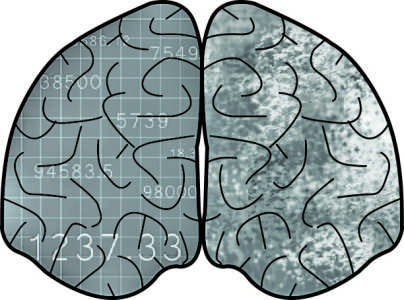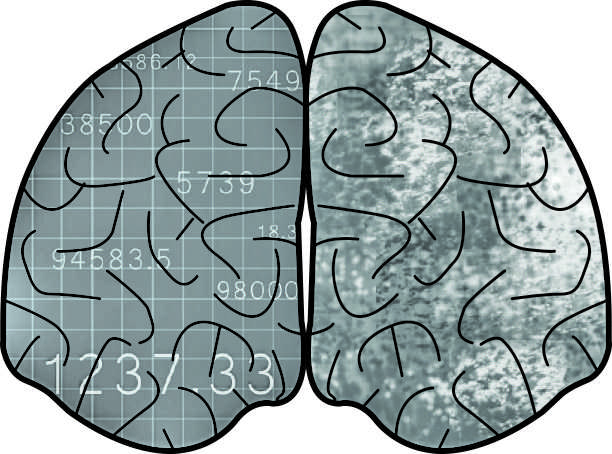When prospies learn about Grinnell, they hear about its open curriculum, the opportunity to take diverse classes and even double major in seemingly unrelated topics. While not all Grinnell students take advantage of the diversity of courses offered, Rachel Knak ’17, a mathematics and religious studies double major, Tim McCall ’15, a chemistry and art history double major and Ruby Barnard-Mayers ’16, an anthropology and mathematics double major, welcome it with open arms.
All three are pursuing a field that they intended to major in before coming to Grinnell, along with one that they didn’t dream they would ever major in. The latter came about on a whim for some.
“I decided my senior year [of high school] when I took calc that I was really into math, [and I] wanted to pursue a career in mathematics,” Knak said. “During my first semester here, I wanted to take anthro but I didn’t get in, so I accidentally got placed in a religious studies class, and I loved it.”
Barnard-Mayers intended to be a math major as well, but her tutorial professor recommended areas that were out of her comfort zone.
“I thought [anthropology] was about archeology and studying old humans and their bones,” she said. “But I really enjoyed intro, and after taking it I realized how broad it really is and how applicable it was to so many different areas.”
McCall doesn’t like history, but found art history fascinating after he took his first class.
“I kind of found [history] to be sort of dry, but art history is like normal history with colors,” he said. “It’s very fascinating to learn of techniques, decoding and going through and sorting out what’s going on in the picture.”
Even though these students are majoring in subjects that seem unrelated, they find connections between them.
“[Math and anthropology] don’t really interact on the surface but thinking about it deeper, the way both subjects teach you to think can help the other, I think it’s helped me understand both areas better,” Barnard-Mayers said.
However, some may not find a connection between their two subjects. “[Religion studies] is more like a hobby, like something that I’ll read books on in the long term,” Knak said. “I’m interested in pretty much every religious studies class in the catalog and I [just] want to take as many as possible.”
Double majoring has its struggles, but doing it in two very different subjects has its specific difficulties.
“There’s not much overlap, and switching gears can be frustrating,” McCall said. “Sometimes I’ll be writing a paper and I’ll be like, ‘Oh, I have to finish my lab notebook.’ It’s such a big switch, and it can get challenging.”
However, this exact quality can be something positive for others. “It’s nice to have this diversity in my workload,” Barnard-Mayers said. “It’s beneficial to me because if I get tired of doing one problem set I can switch. It keeps me awake and motivated to do my work.”
Knak feels similarly. “If I get tired of reading philosophy and writing papers I can do math, and when I get tired of struggling with problems and working proofs I can do religious studies,” she said. “So when I’m tired with one, the other is such a different thought process that I can just swap.”
 One might think that double majoring in two very different areas will eliminate the option of studying abroad, but that is not the case. McCall went to New Zealand and took classes in aesthetics, organic chemistry and pacific island studies.
One might think that double majoring in two very different areas will eliminate the option of studying abroad, but that is not the case. McCall went to New Zealand and took classes in aesthetics, organic chemistry and pacific island studies.
Knak is even planning to study subjects that are unrelated to both majors. “I’m going to do Grinnell-in-London fall semester next year, and will probably take music and theater there, maybe politics,” she said. “I’ll probably do an internship, which hopefully will be math, though. But there will be no religious studies.”
As for future plans, both Barnard-Mayers and McCall plan to pursue careers that incorporate both of their majors. “I’m thinking of [doing something about] paper conservation, [in which] you study the deterioration of paper in a molecular level,” McCall said. “There is certainly some overlap between chemistry and art history with art conservation and restoration practices.”
Barnard-Mayers wants to go into public health and specifically epidemiology and disease research. “Having [anthropology as a major] is helpful in understanding how people of different cultures interact,” she said. “The math aspect allows me to quantify the data and be able to publish research that will hopefully influence health policies.”
However, Knak doesn’t plan to use her religious studies major as a career. “I’m hoping to go to grad school, hopefully get a Ph.D. in applied mathematics and going into industry,” she said. “I don’t think I’ll be able to pursue any career that will involve religious studies.”
Whatever they’re going to do with their majors, all three of them credit Grinnell’s liberal arts education for making their academic experience possible.
“I just like the diversity and the flexibility to change your mind and have the opportunities to do different things,” Barnard-Mayers said. “If I hadn’t gone to Grinnell, there would be very few other places that I would’ve been able to do this.”





























































